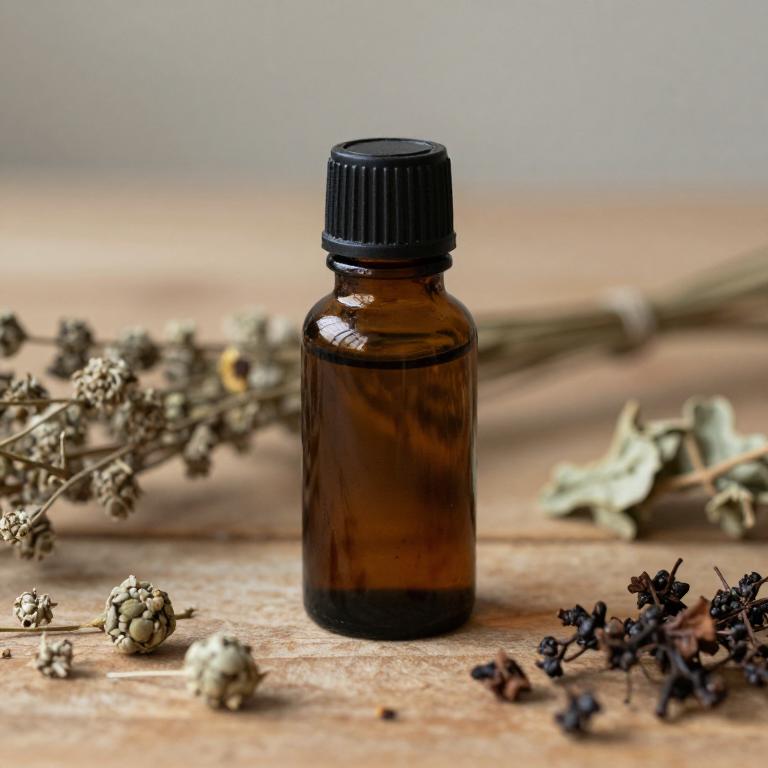10 Best Herbal Essential Oils For Loss Of Appetite

Herbal essential oils have been traditionally used to support digestive health and stimulate appetite, with several oils showing promising effects in addressing loss of appetite.
Oils such as ginger, peppermint, and lemon are commonly used for their ability to enhance digestion and promote a sense of well-being, which can indirectly improve appetite. When diluted properly, these essential oils can be inhaled, applied topically, or used in diffusers to provide aromatherapy benefits that may help stimulate the appetite. However, it is important to consult with a healthcare professional before using essential oils, especially for individuals with underlying health conditions or those taking medications.
While essential oils can be a complementary approach, they should not replace medical advice or treatment for persistent loss of appetite.
Table of Contents
- 1. Ginger (Zingiber officinale)
- 2. Turmeric (Curcuma longa)
- 3. Fennel (Foeniculum vulgare)
- 4. Peppermint (Mentha piperita)
- 5. Ceylon cinnamon (Cinnamomum verum)
- 6. Rosemary (Rosmarinus officinalis)
- 7. Licorice (Glycyrrhiza glabra)
- 8. Black pepper (Piper nigrum)
- 9. Chaste tree (Vitex agnus-castus)
- 10. Cumin (Cuminum cyminum)
1. Ginger (Zingiber officinale)

Zingiber officinale, commonly known as ginger, is widely recognized for its medicinal properties, including its potential to stimulate appetite.
The essential oils derived from fresh ginger roots contain bioactive compounds such as gingerol and shogaol, which may help enhance digestive function and reduce nausea. These oils can be used aromatically or topically to support appetite in individuals experiencing loss due to illness, stress, or digestive issues. However, it is important to consult with a healthcare professional before using ginger essential oils, as they may interact with certain medications or conditions.
When properly diluted, ginger essential oils can offer a natural and effective complement to dietary and lifestyle approaches for managing appetite loss.
2. Turmeric (Curcuma longa)

Curcuma longa, commonly known as turmeric, is a well-known herb that has been traditionally used for its medicinal properties, including the production of essential oils.
These essential oils, derived from the rhizomes of the plant, contain bioactive compounds like curcumin, which have been studied for their potential health benefits. While curcuma longa essential oils are not typically used as a primary treatment for loss of appetite, some research suggests that their anti-inflammatory and digestive properties may support gastrointestinal health. However, it is important to consult a healthcare professional before using these oils, as they can interact with certain medications and may not be suitable for everyone.
Overall, while curcuma longa essential oils show promise in supporting overall wellness, their specific role in addressing loss of appetite remains an area for further scientific investigation.
3. Fennel (Foeniculum vulgare)

Foeniculum vulgare, commonly known as fennel, is a herb widely used in aromatherapy for its essential oils, which are known to support digestive health.
The essential oil of fennel contains compounds like anethole and limonene, which may help stimulate appetite by promoting the secretion of digestive enzymes and improving gastrointestinal function. When inhaled or used in aromatherapy diffusers, fennel essential oil can help alleviate feelings of nausea and bloating, making it beneficial for individuals experiencing loss of appetite. It is often recommended as a natural remedy to encourage eating, especially in cases of digestive discomfort or post-illness recovery.
However, it is important to use fennel essential oil in diluted form and consult with a healthcare professional before incorporating it into a treatment regimen.
4. Peppermint (Mentha piperita)

Mentha piperita, commonly known as peppermint, is a popular herb whose essential oil is widely used for its refreshing and invigorating properties.
The essential oil of peppermint contains high concentrations of menthol, which can stimulate the senses and help alleviate feelings of nausea and bloating, both of which may contribute to a loss of appetite. When used aromatically or in diluted form, peppermint oil may help improve digestion and enhance the sense of taste, potentially encouraging food intake. It is often recommended in herbal medicine for individuals experiencing appetite suppression due to digestive issues or stress.
However, it is important to use peppermint essential oil with caution, as it can cause irritation if not properly diluted, and it may not be suitable for everyone, especially those with certain medical conditions.
5. Ceylon cinnamon (Cinnamomum verum)

Cinnamomum verum, commonly known as true cinnamon, contains essential oils that have been traditionally used to stimulate appetite and improve digestion.
The primary components of these oils, such as cinnamaldehyde and eugenol, possess warming properties that can help enhance digestive function and encourage food intake. When used aromatically or in diluted form, cinnamon essential oil may help alleviate feelings of nausea and promote a sense of well-being, which can indirectly support appetite. However, it is important to use these oils with caution, as they can be irritating if not properly diluted.
For individuals experiencing a loss of appetite, consulting with a healthcare professional before using cinnamon essential oils is recommended to ensure safe and effective use.
6. Rosemary (Rosmarinus officinalis)

Rosmarinus officinalis, commonly known as rosemary, is a fragrant herb whose essential oil has been traditionally used for its stimulating and digestive properties.
The essential oil of rosemary contains compounds like 1,8-cineole and camphor, which may help enhance appetite by promoting digestive function and reducing feelings of bloating or discomfort. Studies suggest that inhaling rosemary essential oil or using it in aromatherapy can stimulate the nervous system, potentially encouraging a sense of well-being and appetite. It is often used in blends to support digestion and can be applied topically or diffused in a controlled manner.
While it is not a substitute for medical treatment, rosemary essential oil may offer a natural complementary approach to managing loss of appetite.
7. Licorice (Glycyrrhiza glabra)

Glycyrrhiza glabra, commonly known as licorice, contains essential oils that have been traditionally used to address digestive issues, including loss of appetite.
These essential oils are derived from the root of the plant and contain compounds like glycyrrhizin and various volatile oils that may stimulate digestive secretions and enhance gastric motility. The aromatic properties of licorice essential oils can also have a calming effect on the digestive system, potentially improving appetite in individuals with gastrointestinal discomfort. However, due to its potent nature, glycyrrhiza glabra essential oil should be used with caution and under professional guidance to avoid potential side effects such as hypertension or electrolyte imbalances.
Overall, while licorice essential oils show promise in supporting appetite, their use should be carefully monitored to ensure safety and efficacy.
8. Black pepper (Piper nigrum)

Piper nigrum, commonly known as black pepper, contains essential oils that have been traditionally used to stimulate digestion and enhance appetite.
The primary active compounds in these oils, such as piperine and other volatile oils, may help improve gastric secretions and promote a sense of fullness, which can be beneficial for individuals experiencing a loss of appetite. While some studies suggest that piperine can enhance the absorption of nutrients and aid in metabolic processes, more research is needed to confirm its effectiveness specifically for appetite stimulation. When used in aromatherapy or as a dietary supplement, piper nigrum essential oils may offer a natural approach to addressing appetite loss, though it is important to consult with a healthcare professional before use.
Overall, these oils may serve as a complementary therapy rather than a standalone solution for appetite-related issues.
9. Chaste tree (Vitex agnus-castus)

Vitex agnus-castus, commonly known as chaste tree, is often used in herbal medicine to support hormonal balance and emotional well-being.
While it is not typically used as an essential oil for direct consumption, its essential oil may be applied in aromatherapy to help alleviate stress and anxiety, which can contribute to loss of appetite. The calming properties of vitex essential oil may indirectly support appetite by promoting relaxation and emotional stability. However, it is important to consult a qualified aromatherapist or healthcare provider before using essential oils for appetite issues, as they can interact with other medications or conditions.
Overall, while vitex essential oil may offer some supportive benefits, it should not be considered a primary treatment for loss of appetite without professional guidance.
10. Cumin (Cuminum cyminum)

Cuminum cyminum, commonly known as cumin, is a spice and herb that has been traditionally used for its aromatic and medicinal properties.
The essential oil derived from cumin seeds contains compounds such as limonene and cineole, which are known for their stimulating and digestive effects. When used in aromatherapy or as a dietary supplement, cumin essential oil may help stimulate appetite by enhancing digestive function and promoting a sense of well-being. However, it is important to consult with a healthcare professional before using it, especially for individuals with existing health conditions or those taking medications.
While some studies suggest potential benefits, more research is needed to fully understand its effectiveness in treating loss of appetite.